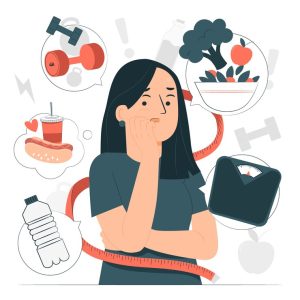
Non-Judgmental Mindfulness: The Key To Happiness
Our daily lives are often filled with judgment. When I say Judgment, I don’t necessarily mean a negative label. I mean, any label. What is

Our daily lives are often filled with judgment. When I say Judgment, I don’t necessarily mean a negative label. I mean, any label. What is

“It’s not about what’s wrong with you, it’s about what happened to you.” When you’re battling addiction, it’s easy to overlook how your past experiences

The world often sees eating disorders as just a food and weight issue. But for you, the one struggling, it’s likely way more complex. When

The purpose of this article is to help you be more aware of the nature of your smile through a simple mindfulness practice. Here are

The world is more connected than ever. Think about this, a mere click connects us to the other side of the globe. Social media buzzes

5 Ways To Manage Conflict In The Workplace Conflicts are a common occurrence in life, be it at home, in relationships, or at work. Conflict

Trauma can create a lens through which you view the world as an unsafe, unpredictable, and unwelcoming place. This distorted view can extend to your

In the hustle and bustle of your daily life, do you find yourself always on the run? Constantly moving from one place to another or from one

Since sleep is such an integral part of our well-being, let’s explore some of the reasons for ever growing sleep difficulties and how you can

Do you start the day or does the day start you? Many emails to answer, meetings to attend, planning and organizing the day are some

We specialize in combining psychotherapy with deep wellness practices like mindfulness and meditation and creating a customized mental health plan for individuals and organisations.
We specialize in combining psychotherapy with deep wellness practices like mindfulness and meditation and creating a customized mental health plan for individuals and organisations.

A young woman from another country moved with her family to live for one year in a town near the monastery. When, in the course of the year she discovered the monastery, she would periodically visit to have discussions with the Abbess. The Abbess introduced her to meditation, which became very meaningful for the young woman.
When the family’s year-long stay was drawing to an end, the young woman asked the Abbess, “In my country there is no Buddhism and no one has even heard about meditation. How can I continue to learn and deepen the practice you have started me on?”
The Abbess said, “When you return home ask far and wide for who, among the wise people, is recognized as having the greatest ability to listen. Ask that person to instruct you in the art of listening. What you learn about listening from such a person will teach you how to further your meditation practice.
― Gil Fronsdal, A Monastery Within: Tales from the Buddhist Path